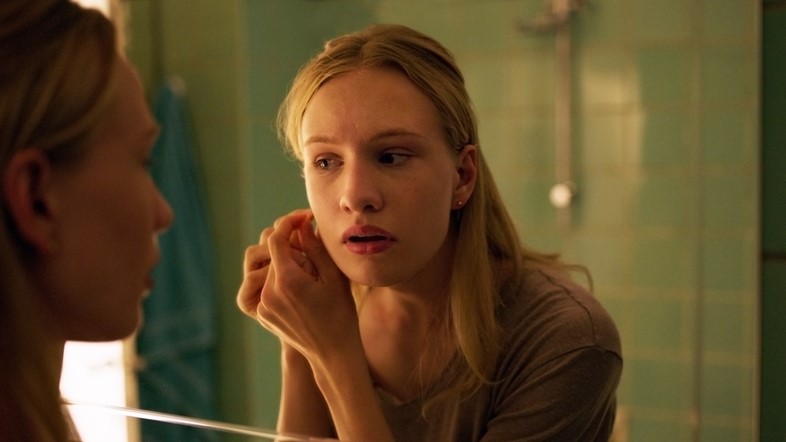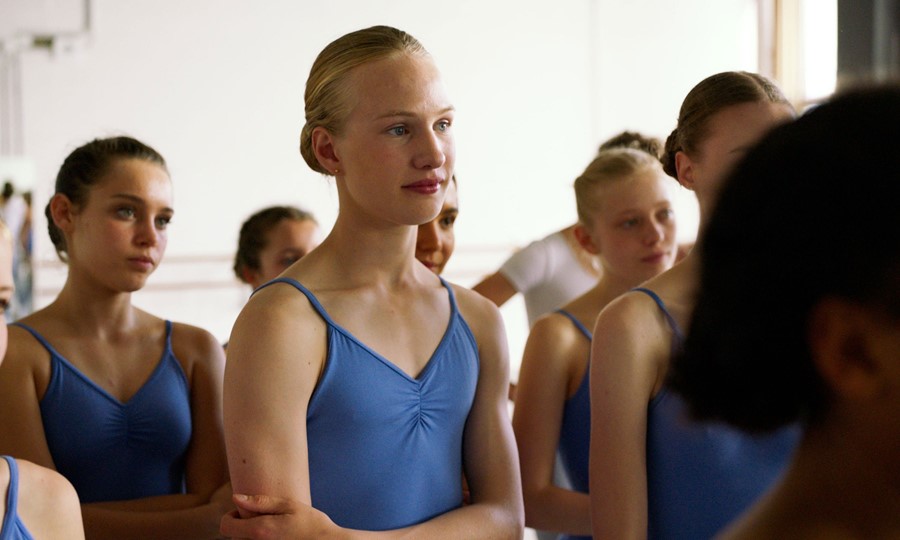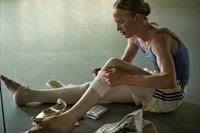Out today, Girl has been called ‘‘the most dangerous movie about a trans character in years” – but director Lukas Dhont and dancer Nora Monsecour, who inspired the film, disagree. Here, they share their views on the controversy
In 2009, aged 18, student filmmaker Lukas Dhont happened across the story of Nora Monsecour while leafing through a Belgian newspaper. Monsecour, a young trans girl, wanted to become a ballerina but her school had refused to allow her to switch classes. That story and the courage Monsecour displayed in asserting her identity, captivated him: “I was immediately very drawn to her as a person, I thought, wow how extraordinary that a 15-year-old is able to be so true to herself.” For Dhont, part of what made Monsecour’s bravery so moving was how far removed it was from his own experience as a cisgender gay man. “As an 18-year-old, up until then, I’d spent a lot of my energy and my time and my life trying to fit in so desperately that I’d killed a part of myself in a way. When I read her story, when I met her, I was still not comfortable with my own sexuality. I grew up, I came of age making this film.” For Dhont, Monsecour’s story “spoke about so many of us I think, trying to fit in rather than stand out. She was an example of not doing that. What she did at 15, or even younger at nine when she first spoke about who she was, for some people takes a lifetime. Some people don’t ever get there.”
After arranging coffee, Dhont suggested making a documentary with Monsecour about her experience. Still a teenager herself, younger than Dhont, she didn’t feel ready to be in front of a camera. “At that time, I was fully aware I was a woman and I was transgender, but there was a lot of shame connected to the label ‘transgender’ for me. It was a stage in my life where I was so afraid of being connected to this label that having a documentary would have been a step too much at that time,” she explains. Working closely together for some eight years, the duo instead created Girl, a fictionalised retelling of Monsecour’s story, starring 15-year-old cisgender dancer Victor Polster as the lead, Lara.
Rather than pitting Lara against an outside institution that refuses to accept her for who she is, Girl instead focuses on her inner conflict. What results is a story that’s intensely intimate – an incredibly vulnerable portrait of a teenager coming to terms with themselves, struggling to reconcile their outside appearance with their inner identity. This focus, the exploration of Lara’s psychological struggles, and the lingering gaze of the camera on her dancer’s body, has divided some audiences. The film won a host of awards at Cannes, including the Queer Palm, and was nominated for a Golden Globe. But, in an essay for The Hollywood Reporter, trans critic Oliver Whitney labelled the film “sadistic,” arguing that “Lara is merely a physical specimen to gawk at, and the more her body is pitted against her – both with gender and ballet – the more the film relishes in capturing her torment”. Likewise, in a feature for the BFI, Cathy Brennan writes that Girl is “no victory for trans representation”.
For Monsecour, while such criticisms are valid, they don’t necessarily reflect her experience of the film. “Because of Girl and because of this discussion, we’ve given a platform for others to tell their stories, and they also have a right to be heard. It’s had a positive result, because now everyone is talking about it, we can have a discussion together.” She continues: “The biggest misunderstanding is that I was not involved at all. I was. In the early days it started with conversations between Lukas and I, then it developed into script-making – I read all the scripts and could give notes – and then the casting and the filming. I was very much involved. We started with two people but as others became involved I still had this friend next to me. I always had the feeling that Lukas was still thinking of me, that he was still involving me as much as when we started just the two of us.”

I ask Dhont, what does he think he’s learnt from making this film? “It’s an overwhelming moment in time, yet in our case an extremely wonderful moment in time. I’ve always believed in the power of her message, in the power of this film, yet I never expected for it to get to this scale. When you have so few [movies about queer experience], every film has the pressure to represent the whole community. People see the film as the representation of trans experience. It’s a representation of trans experience.”
It’s a sentiment that Monsecour echoes – for her, working on Girl has been a profoundly life changing experience. “I’ve found much more peace and ease with the fact that I am transgender and that I am living this life as a dancer who is transgender. I can finally say that that’s OK for me, and that I have no guilt or shame or negative feelings anymore. I’m not saying that my whole journey will be effortless and constantly positive, because of course there will be other challenges, but the film took a massive weight off of my shoulders and I’m very thankful for that.”
Girl is in UK cinemas now.






